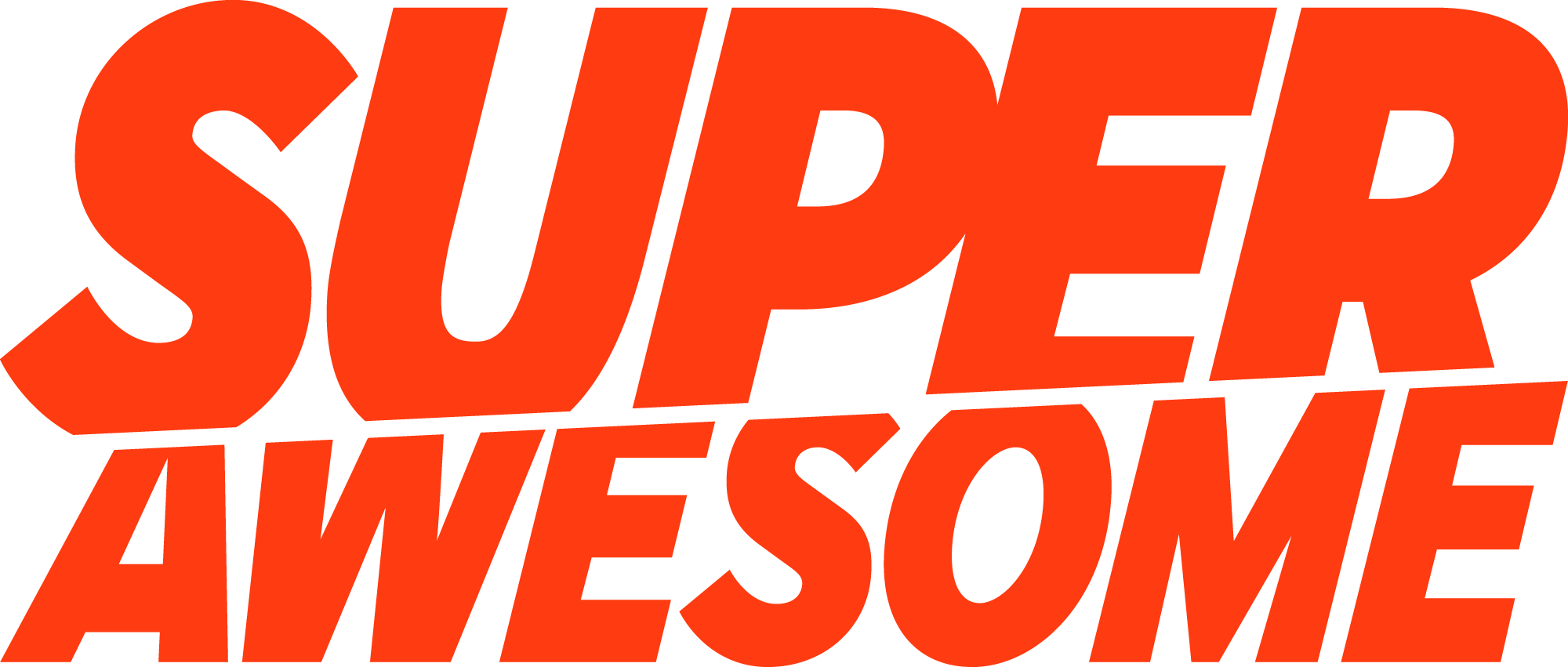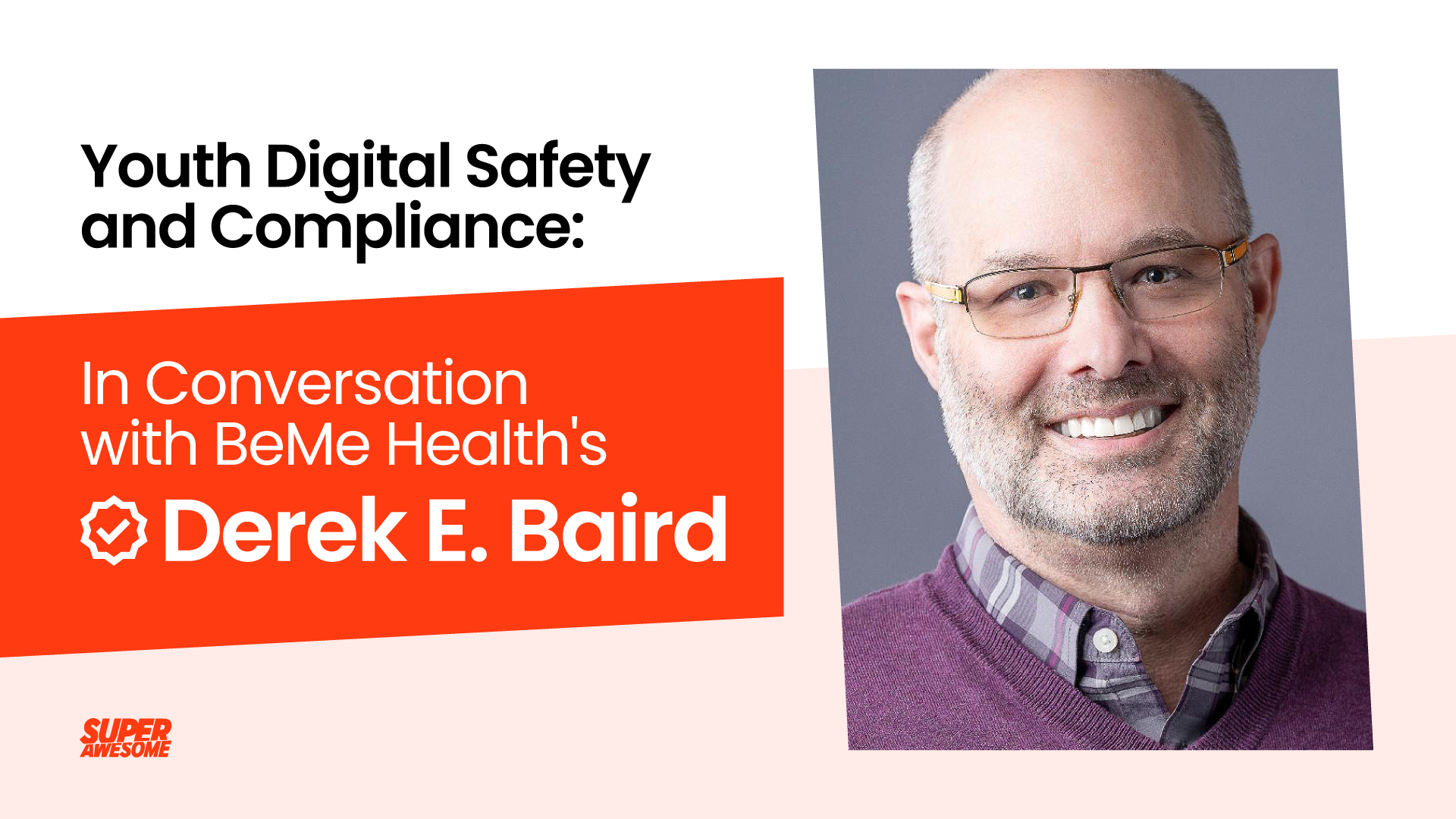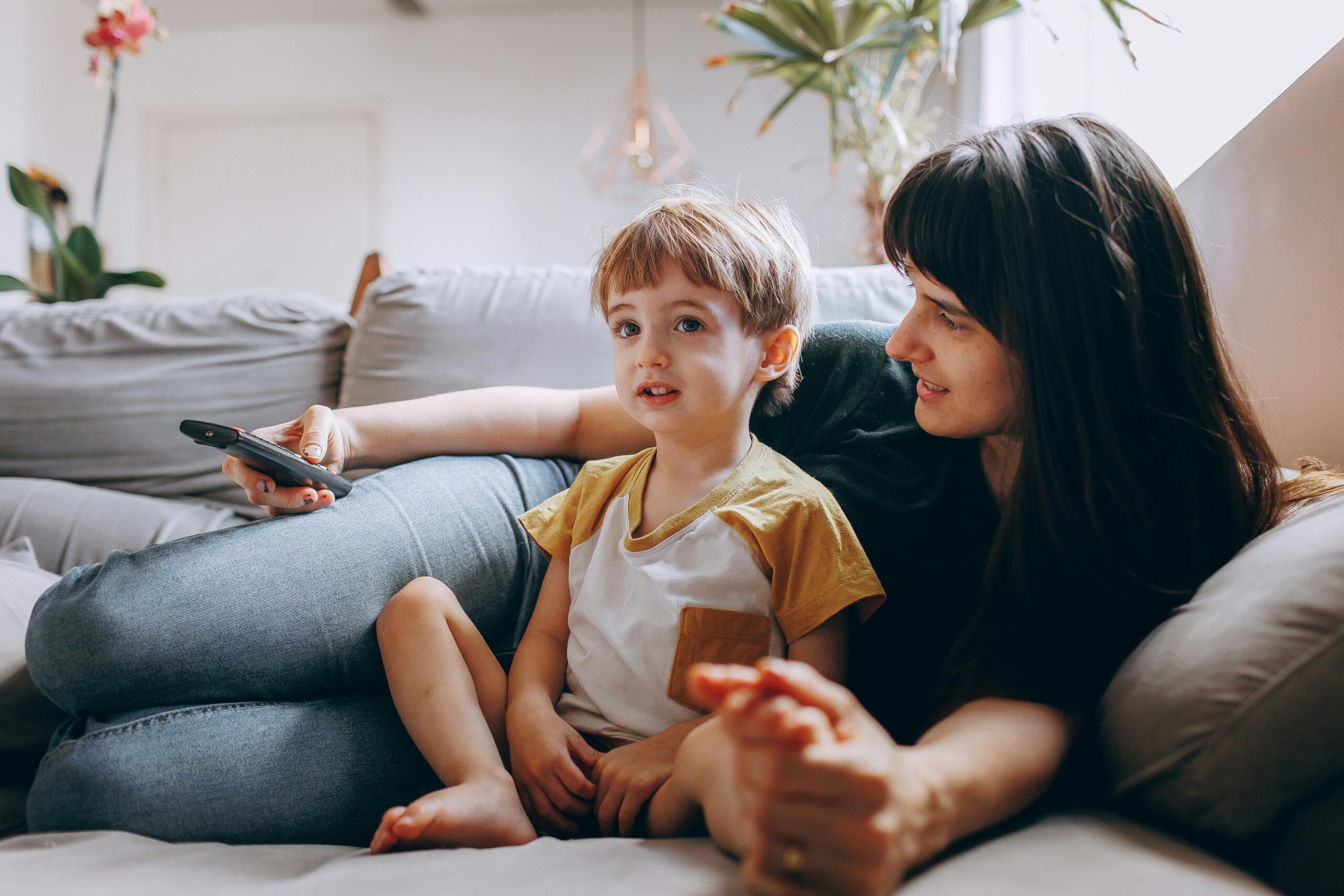At SuperAwesome, our goal is to make the internet safer for the next generation. Through our KidAware and TeenAware training programs, we help the industry stay informed and up-to-date with current privacy laws, while also achieving the top standards in digital youth marketing.
We frequently discuss these important topics with industry leaders, and we recently spoke with Derek E. Baird, Chief Youth Officer at BeMe Health, a mobile mental health platform made with teens in mind, about his thoughts on bringing compliance best practices into day-to-day operations, the importance of having his whole organization get certified in KidAware, and challenges the advertising industry faces regarding youth digital safety today. Read our full interview below.
What is the biggest challenge the advertising industry faces right now when it comes to ensuring kids’ digital safety?
The biggest challenge the advertising industry faces is keeping up with the ever-changing legislation around advertising for products designed for kids, tweens, and teens in order to best prioritize safety, privacy, and trust.
This includes the Kids Online Safety Act (KOSA), the Children and Teens Online Privacy Protection Act (CTOPPA), and the recently passed California Age-Appropriate Design Code legislation. BeMe prioritizes safety, with its rigorous guidelines that permit the use of teen data only to improve service, with no third-party advertising or third-party use of the data. As part of our commitment to Child Rights by Design and to help teens better understand their rights and how we use their data, our Terms of Service and Privacy Policy are written in English and Spanish on our website.
How do you stay ahead of kids’ privacy regulations and industry self-regulation? How do you keep your organization updated on the latest regulations?
As the Chief Youth Officer at BeMe, one of my core responsibilities is keeping our team and product centered on child rights and all things trust and safety. This commitment to kids’ privacy means ensuring that during all phases of product development, we design with privacy as a feature, not an afterthought.
It also means that when state or federal entities introduce new privacy regulations, I read the proposed legislation and look at how that bill would impact BeMe, our product roadmap, and our teen community. As a policy nerd, having the opportunity to read proposed legislation and do policy analysis is one of my role’s bright spots.
One of the things I enjoy the most is reading and studying proposed legislation. As someone passionate about public policy, it’s exciting to analyze them and see how they may impact our society.
I also keep updated on the latest regulations through my kids’ trust and safety ecosystem colleagues. As a professional community, we collaborate and support each other and share privacy news, case studies, and other resources.
What was the most interesting, valuable, or surprising thing your team learned from KidAware?
Early on, we identified the SuperAwesome KidAware certification as the leading training program on data privacy and safety standards for companies that work with youth data. As BeMe Health’s team has grown, we’ve also ensured all parts of the organization can contribute to our efforts to protect teens. That is why, at BeMe, regardless of team and role, every staff member is required to complete KidAware training and certification.
As BeMe Health continues to grow and serve even more teens, we will continue to share how we prioritize trust and safety. For now, we’re grateful that the spotlight has turned to this critical issue, and we’re proud to work with individuals and organizations, like SuperAwesome, that share our values and commitment to action.
How has your team historically felt about kids’ compliance and safety?
From our founding, we committed to building products for teens that would exceed the standards set by regulators and third-party groups. Why? Because we wanted to live our values right from the start and because retrofitting products to meet trust and safety standards is slower, more costly, and more error-prone than getting it right from the outset.
BeMe not only complies with existing U.S. regulations such as COPPA but also aligns, where there isn’t conflict with U.S. law, with more rigorous international child rights regulations, including the UK Age-Appropriate Design Code. We also integrate child rights into our design, business, and products by aligning with the UN Convention on the Rights of the Child (UNCRC) and the principles of Designing for Children’s Rights (D4CR). We also look forward to the implementation of the California Age-Appropriate Design Code to impact child rights and safety positively.
Do you have tips for translating compliance best practices into things your team can implement daily?
A core tenant of our Trust & Safety team is integrating child rights considerations into our corporate policies, product, and management processes. BeMe teams undergo an annual UNICEF and LEGO child rights assessment to ensure we center children’s rights in everything we do. This tool guides companies in assessing their policies and processes against the five areas of the UNICEF ITU Child Online Protection Guidelines.
BeMe doesn’t prioritize trust and safety for teens, we prioritize it with teens. Like in all parts of our work, we see the user as our core stakeholder. With our Teen Advisory Board of over 50 teens, we discuss new features and dive into how they’ll work.
_________________
Derek E. Baird, M.A., is the Chief Youth Officer at BeMe Health. He is the author of The Gen Z Frequency: How Brands Tune In and Build Credibility. He previously worked at The Walt Disney Company, receiving a Disney Inventor Award for a patent on children’s digital technology and online privacy.
To learn more about KidAware and TeenAware, including how to get certified, or to arrange a training session for your team, partners, or clients, contact us today.






